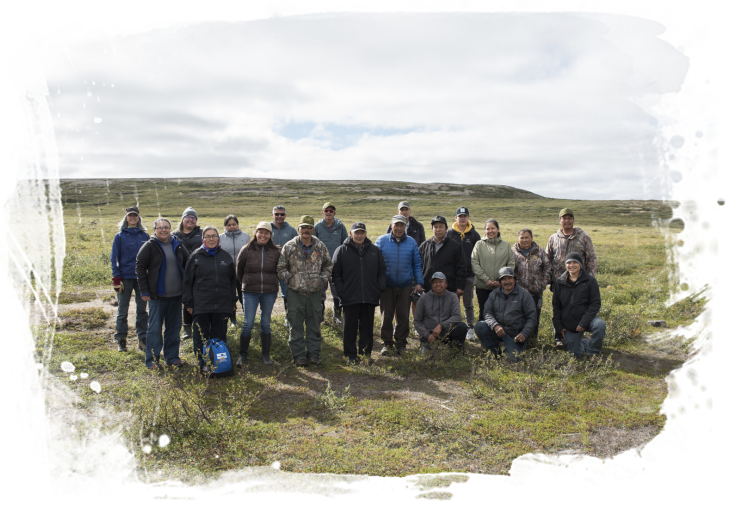We review research proposals submitted for licensing through the Aurora Research Institute to ensure that research in the Tłı̨chǫ region aligns with Tłı̨chǫ goals and values. We also review to ensure that research follows regional, national and international standards, including the following:
Truth and Reconciliation Commission Call to Action
Canada’s Truth and Reconciliation Commission’s 94 calls to action call on governments, non-governmental organizations, educators, and the public to take action to renew respectful and understanding relationships with Indigenous peoples. Research proposals that align with specific Calls to Action should highlight how their work addresses them.
The First Nations Principles of OCAP®
The First Nations Principles of OCAP® establish standards for how First Nations data should be collected, protected, used or shared. Standing for Ownership, Control, Access, and Possession, the OCAP principles provide a guide for researchers who will be collecting data from First Nations people. OCAP® asserts that First Nations have control over data collection processes in their communities, and that they own and control how this information can be used.
The Tri-Council Policy Statement (TCPS2)
The Tri-Council Policy Statement (TCPS2) is a joint policy of Canada’s three federal research agencies: the Canadian Institutes of Health Research (CIHR), the Natural Sciences and Engineering Research Council of Canada (NSERC), and the Social Sciences and Humanities Research Council of Canada (SSHRC). The TCSP sets out guidelines for the ethical conduct of research involving humans. All research with human participants must adhere to the statement. For work in the Tłı̨chǫ region, Chapter 9: Research Involving First Nations, Inuit and Métis Peoples of Canada will be of particular interest.

